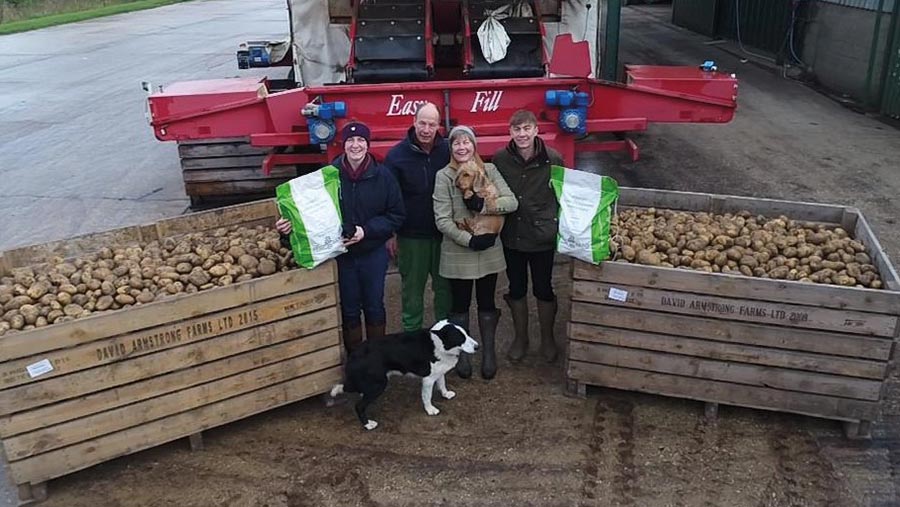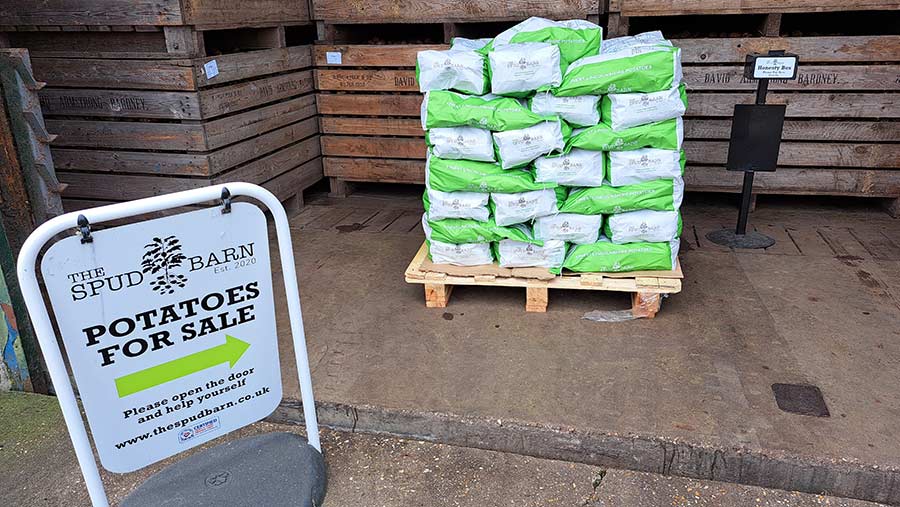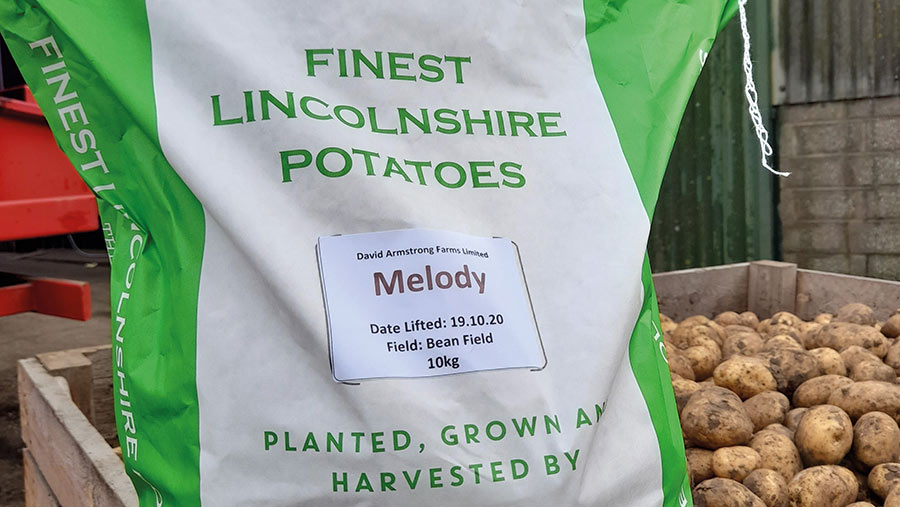Direct potato sales help grower overcome rise in costs
 © The Spud Barn
© The Spud Barn Setting up a direct potato sales business in Lincolnshire has helped the Armstrong family remain profitable as potato costs soar.
What started out as a few farmgate sales to locals during the first Covid lockdown, has grown into a diversified enterprise, known as The Spud Barn.
Growing 65ha of potatoes at Abbey Farm, Bardney, David Armstrong and his children Kate and Ross now sell on average 1.5t of direct potatoes each week.
They have plans to more than double sales this coming year.
See also: Costs up and yields down for Cheshire potato farmer
Improved profits

© The Spud Barn
Faced with rising fuel, fertiliser and storage costs, selling direct has given the family the opportunity to take more control over the price at which they sell their produce and increase profit margins.
“Like many growers, we have increased costs left, right and centre,” says Kate, who manages the business.
“Selling direct means we can put our price up in accordance to inflated inputs, rather than relying on volatile markets.”
Although the bulk of the family’s potato crop is grown on contract for potato giant Branston, The Spud Barn orders have expanded over the past few years.
Orders via phone, text and Facebook were rising and it wasn’t long before the family set up their online website, which now makes up over 50% of sales, with the remainder purchased from the farm.
Successful sales

© The Spud Barn
“In the first year, 3,000 bags were sold – the equivalent of 30t of potatoes. The second year we sold 4,500 bags – a further 15t more than the previous one,” she continues.
Selling in smaller 10kg bags, rather than the conventional 25kg packs, improved marketability, offering greater convenience to the end consumer.
Marketing and brand promotion has been pushed hard on social media and the purchase of a branded delivery van has further boosted sales.
With four fortnightly delivery zones within a 15-mile radius of the farmyard now under way, Kate has set her sights on an ambitious 100t sales target.
“It’s ambitious but most certainly achievable,” she says.
Community interaction
What’s more, the interaction with the general public, involvement with local communities and feedback from customers has been a real highlight for the Armstrong family.
“It’s been great to promote the importance of good-quality, traceable and low-food-mile produce and share this with the general public,” notes Kate.
The farm has recently become Leaf (Linking Environment and Food) marque accredited, in order to demonstrate their commitment to improving farm biodiversity and sustainable farming methods.
Abbey Farm even hosted a farm open day showcasing their farming journey to the wider public, with more than 500 attendees.
Harvest 2022 benefits from drip irrigation system
Harvest of this year’s potato crop began three weeks earlier than usual on 5 September due to the summer drought, with average yields of 50t/ha.
Grower David Armstrong was pleased with yields from varieties Maris Piper, Melody, Taurus and Titan.
Yield and quality fortunately held up well in a dry growing season, thanks to a drip irrigation system that Mr Armstrong has used for the past seven years.
Together with the adequate supply of water and greater sunlight hours, yields in general are up on 2021’s harvest, which showed little bulk and minimal tuber development due to a very dull August.

